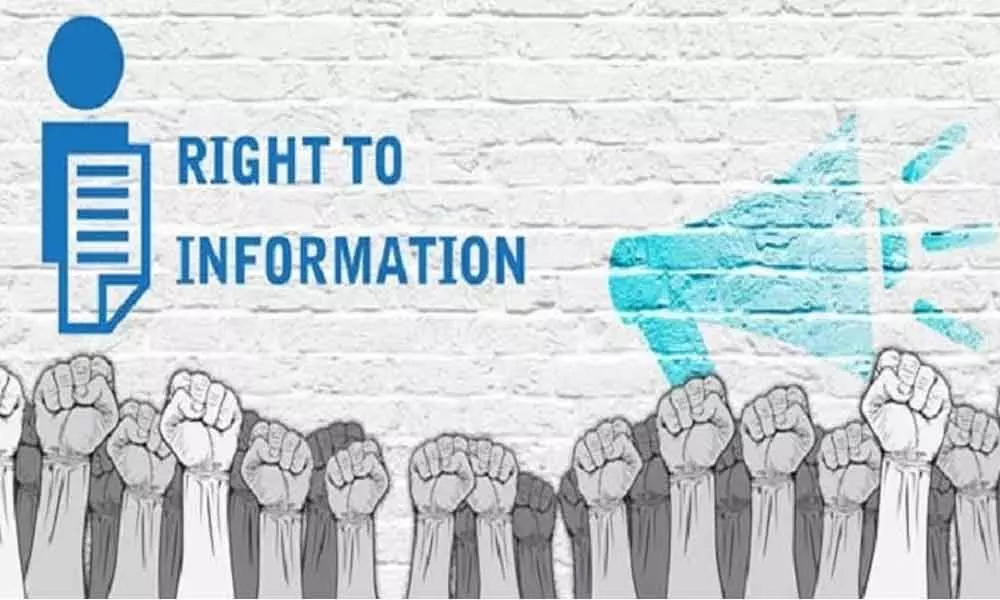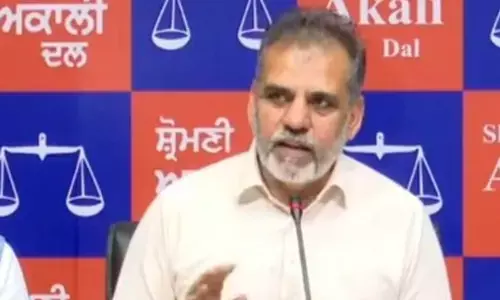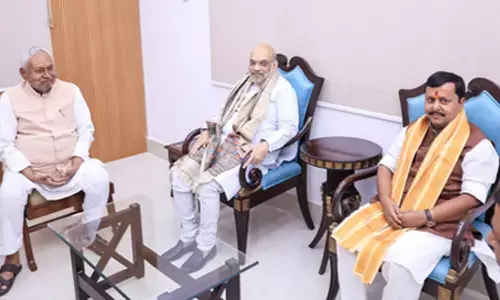Why the SIC did not punish callous PIO?

Why the SIC did not punish callous PIO?
There are three types Public Relations Officers: One- who diligently understand the disclosability of the information sought and promptly provide it within 30 days
There are three types Public Relations Officers: One- who diligently understand the disclosability of the information sought and promptly provide it within 30 days. Two- the PIO who wants to act independently, but not allowed to do so by the superiors; do not allow them to give information; do not support them with necessary funds and infrastructure. Three- the PIO himself has a mindset not to give any information.
Major problem is with these third class PIOs who have strong mind bent upon not giving any information. They do not respond, allow 30 days to lapse, does not care the first appeal to authority within the department, who generally takes the stand of the PIO. They say, let Information Commission direct, then we will see.
This is the prevalent attitude of the PIOs in general, and that is the main problem of implementation of 15-year-old RTI Act. Most of them are callous.
We can admonish and advise to apply mind, without imposing penalty on the first set of PIOs for their inability to give information, but the second set of PIOs deserve punishment. They are fortunate that imprisonment provision was removed from the draft. Otherwise, they should have been jailed for malicious, or negligent denial of information. They deserve maximum penalty.
87-year-old RTI seeker harassed
An applicant, Sureshchandra Maneklal Dholakiya under RTI has been compelled to file a writ petition to get the information which could have been provided without any problem under RTI Act. The saga of 87-year-old applicant resulted in Gujarat High Court's command on September 10, 2020, to State Information Commission to initiate penal proceedings against the callous Public Information Officer
Dholakia, resident of Gujarat asked on April 19, 2018 specific details about the information and documents required, the Public Information Officer and Mamlatdar, Bhachau had refused on the ground that such information pertains to the third party, and therefore, it is privilege information under Section 8(1)(d) of the Right to Information Act.
As usual the first appellate authority (FAA) did not respond to the appeal filed against the denial. Most of the times the First appeal is a time killer without serving any purpose. The Act expected FAA would act as a filter to prevent appeals to escalate to Information Commission level, which is outside and independent of public authority. First Appeal provides a scope for the public authority to review the decision of denial within the same organization so that information seeker is not unnecessarily pushed to take next step.
Another major hurdle in seeking information is the Information Commission, where the most of the Commissioners in most of the appeals, if inclined to give information, not interested in penalising the PIOs even though they noticed the illegality and lack of justification for not sharing information.
Gujarat State Information Commission found reason in second appeal, discovered that request was rejected callously, and allowed the appeal directing the public authority to furnish the information asked for. The only stand, which was taken before the State Information Commissioner was that the information pertains to the third party, could not be provided in view of Section 8(1) (d) of the Right to Information Act.
The PIO never said that information was destroyed or not available. The SIC did not agree with that. The State Information Commissioner had also made drastic remarks against the authority for not supplying the required documents. But the SIC was lenient towards the PIO and public authority. It did not even give the show cause notice to initiate the penalty proceedings against him. Emboldened with this lenience, the PIO took flip flop stands to defy the direction of the Commission.
Surprisingly, after the direction of the State Information Commissioner, the public authority took altogether different stand that the information was not available, saying that it had no record to be produced before the State Information Commissioner, as that was destroyed or was not available.
The public authority in its affidavit in reply to the writ petition stated the affidavit in reply to the respondent, wherein, in paragraph no.10, it was categorically stated that on account of the earthquake natural calamity, the area of Bhachau had faced considerable damage even to the government offices and hence, information was not available with the authority.
Petitioner submitted that this flip flop right from the beginning till the order passed by the State Information Commissioner, by the authorities for not providing the information should not be accepted.
The High Court acknowledged the conflicting stand of the respondent authorities more particularly the Public Information Officer, at the relevant time, before the State Information Commissioner that the information, as sought for, by the petitioner pertains to the third party, and therefore, refused to give him. The court was critical about this kind of attitude of PIO, it said:
"As against that stand, now, stand being taken that the record is not available cannot be accepted by the Court. At the first stage when the response was given to the petitioner by the Public Information Officer as well as State Information Commissioner about the information of the third party, and therefore, not provided would be at the presumption that the respondent authorities had the record with them and after perusal of such record have found that the information sought for by the petitioner is missing, and thereafter, change their stand of no record being available. Therefore, the same cannot be accepted by this Court."
By changing the stand the PIO gave rise to a suspicion that record was available at the time of filing application under RTI, but after the positive direction by the State Information Commission to give the information, they invented a plea of non-availability, for which they preferred to use 'earth quake' as an excuse.
The High Court concluded: "Therefore, there is no hesitation in holding in aforesaid fact situation that the respondent authorities more particularly, Public Information Officer and Mamlatdar, Bhachau has acted in a callous manner as a result of which the petitioner had been deprived of from the right of Right to Information.
Justice A Y Kogje observed,
"The Court is of the view that this is a fit case where the proceedings under Section 20 of the Right to Information Act needs to be initiated in view of non-compliance of the order passed by the State Information Commissioner as well as the casual manner in which the application of the petitioner to seek the right to information under the Right to Information Act has been dealt with."
The matter was relegated back to the State Information Commissioner to initiate proceedings under Section 20 of the Right to Information Act.
Another point that was missed by the High Court is that even under third party excuse, the information cannot be denied. The RTI Act mandates the PIO to consult the third party giving him opportunity to explain his objections against disclosure. If the objection is not convincing, the PIO has to share the information after giving a notice of such decision to the third party.
Before consulting the third party, the PIO must justify his conclusion how it was considered as third-party information. There was no such examination in this case. Changing a stand after SIC directed the information is absolute fraud on the RTI Act.
He is liable on two counts- one for unjustifiable denial of information under RTI Act, two- the non-compliance of the order of the SIC by the public authority. Section 20 of RTI Act makes the PIO liable on these two counts. The appellant needed the documents he sought under RTI, to use them in a pending litigation.
It is not sure whether story, that has come back to State Information Commission, ends there with delivery of information.
(The writer is Dean, School of Law, Bennett University, and former Central Information Commissioner)










